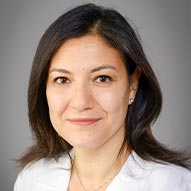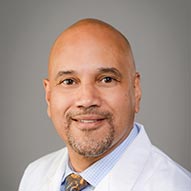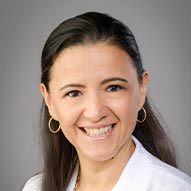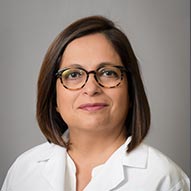Dallas
214-456-8000
Fax: 214-456-8005
Plano
469-497-2505
F: 469-497-2511
Park Cities
469-488-7000
Fax: 469-488-7001
Prosper
469-303-5000
Fax: 214-867-9511
Alagille syndrome can affect multiple organs in the body. At Children's Health℠, kids with Alagille syndrome are seen by liver, heart, kidney and other experts who address all their health needs as one team so they can grow up healthy and happy.
214-456-8000
Fax: 214-456-8005
469-497-2505
F: 469-497-2511
469-488-7000
Fax: 469-488-7001
469-303-5000
Fax: 214-867-9511
Alagille syndrome is a genetic disorder that usually affects the development and function of the liver. Specifically, it makes it hard for the liver to pass bile — a substance made by the liver that helps the body digest food and process waste — to the small intestine. This is because the liver has smaller or fewer bile ducts (tubes) than normal.
This can affect the body in lots of different ways. For example, the skin may become yellow or itchy, the liver may become enlarged and lose function, and the body may not absorb fats and vitamins as well.
Alagille syndrome can affect other organs too. This includes the heart, where issues can range from a harmless heart murmur to structural defects that require surgery.
Because the variety of potential symptoms and health impacts is so wide, children with Alagille syndrome should receive care from a multidisciplinary team, who can care for their full range of needs.
On the skin:
In other organs:
Facial features:
Other:
Many children with Alagille syndrome show jaundice and other signs of liver disease in the early months after being born. When that happens, we do tests right away to see what’s causing it. In other cases, children may have milder symptoms that show up when they’re a few years old. These can vary a lot, and none of them automatically mean a child has Alagille syndrome. So our experts look for combinations of common symptoms, such as jaundice, butterfly vertebrae, and certain features of the eye and face.
We use blood, liver biopsy and genetic tests to get a clear picture of what’s happening in the body and what’s causing it. Blood tests can measure vitamins and other contents of the blood that are often affected by Alagille syndrome. A liver biopsy means we study a small sample of liver tissue, which can have certain characteristics that indicate Alagille’s syndrome. A biopsy also helps us determine how advanced a child’s liver disease is. Finally, a genetic test will confirm the diagnosis in most cases.
If we know or suspect your child has Alagille syndrome, we do additional tests to check on their liver, kidneys, heart and other organs that are often affected by the disease. Sometimes Alagille syndrome doesn’t do any harm to other organs, but sometimes it can have a serious effect. Our care team includes experts in all these parts of the body who know what to look for and what treatments may be necessary.
Most cases of Alagille syndrome happen because of a change in a specific gene. Sometimes this gene change is inherited from a parent, and sometimes it develops on its own while the fetus is developing. A small number of cases are caused by a change in a different gene, but the range of symptoms and effects on the body are the same.
We treat Alagille syndrome by bringing together all of the different specialists your child needs, including:
All of these experts work together as one team, coordinating treatments and addressing all your child’s health needs.
The team at our Pediatric Liver Disease Center features hepatologists (liver experts) and gastroenterologists with special training in conditions like Alagille syndrome. When necessary, these experts work closely with dieticians, heart specialists and other providers to address all of your child’s health needs and help them grow up healthy and happy.










Alagille syndrome is genetic, so parents can pass it on to their children. If someone has this condition, there’s a 50-50 chance their child will have it too. But the severity of the condition varies widely from person to person, even within families.
Liver disease is common in people with Alagille syndrome. Often this resolves on its own during childhood, but in some cases it gets worse and may require a transplant. Children’s Health has the only pediatric liver transplant center in North Texas, with outcomes that exceed national averages.
Probably not. A low-fat diet is appealing to some parents, because they find that fatty foods can make kids with Alagille syndrome have extra loose stools. In fact, most of these kids need high-calorie food that is rich in special kind of fat called medium chain fatty acids. These foods make up for the growth and nutrition deficits caused by their condition. The expert dietitian on our team will advise you on the ideal diet for your child.